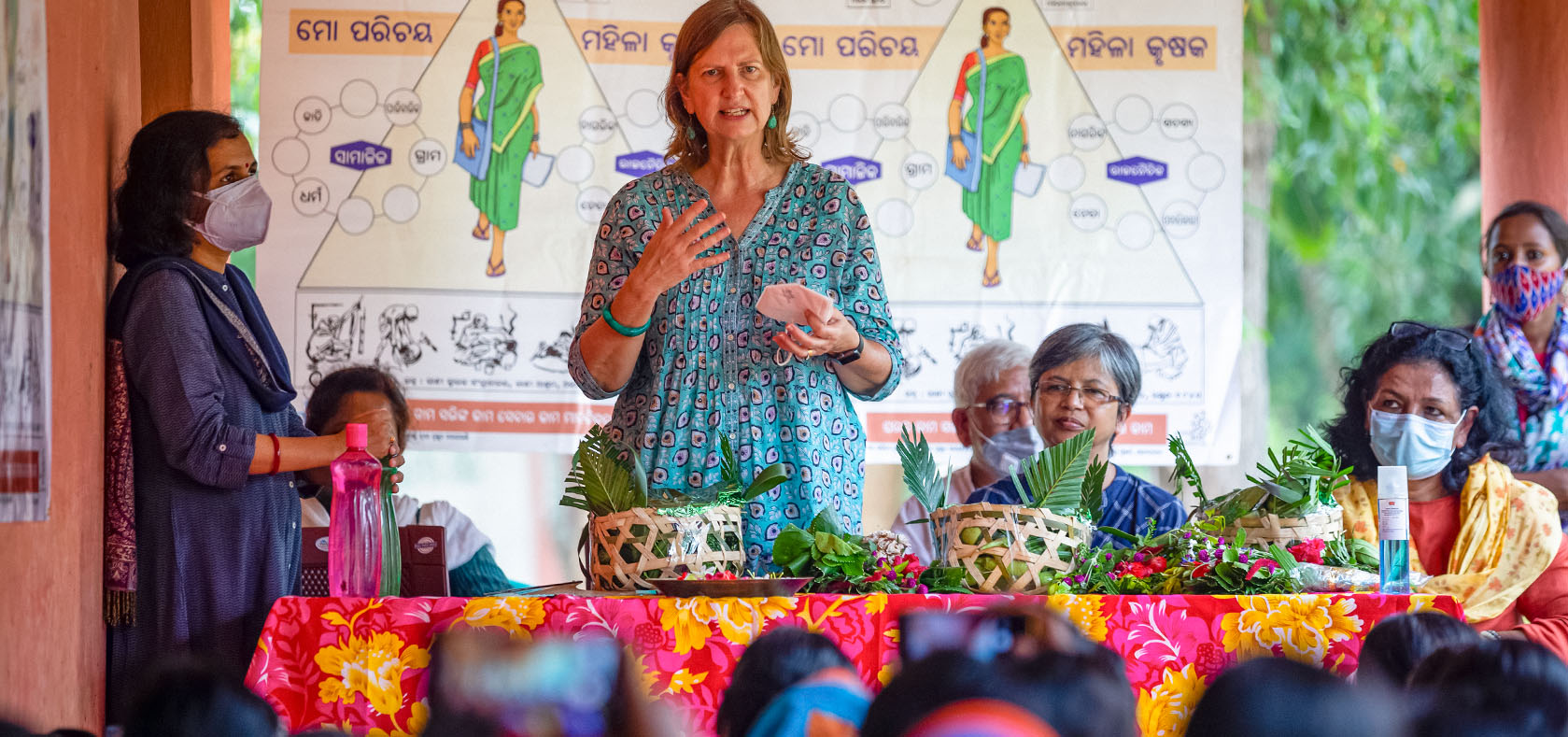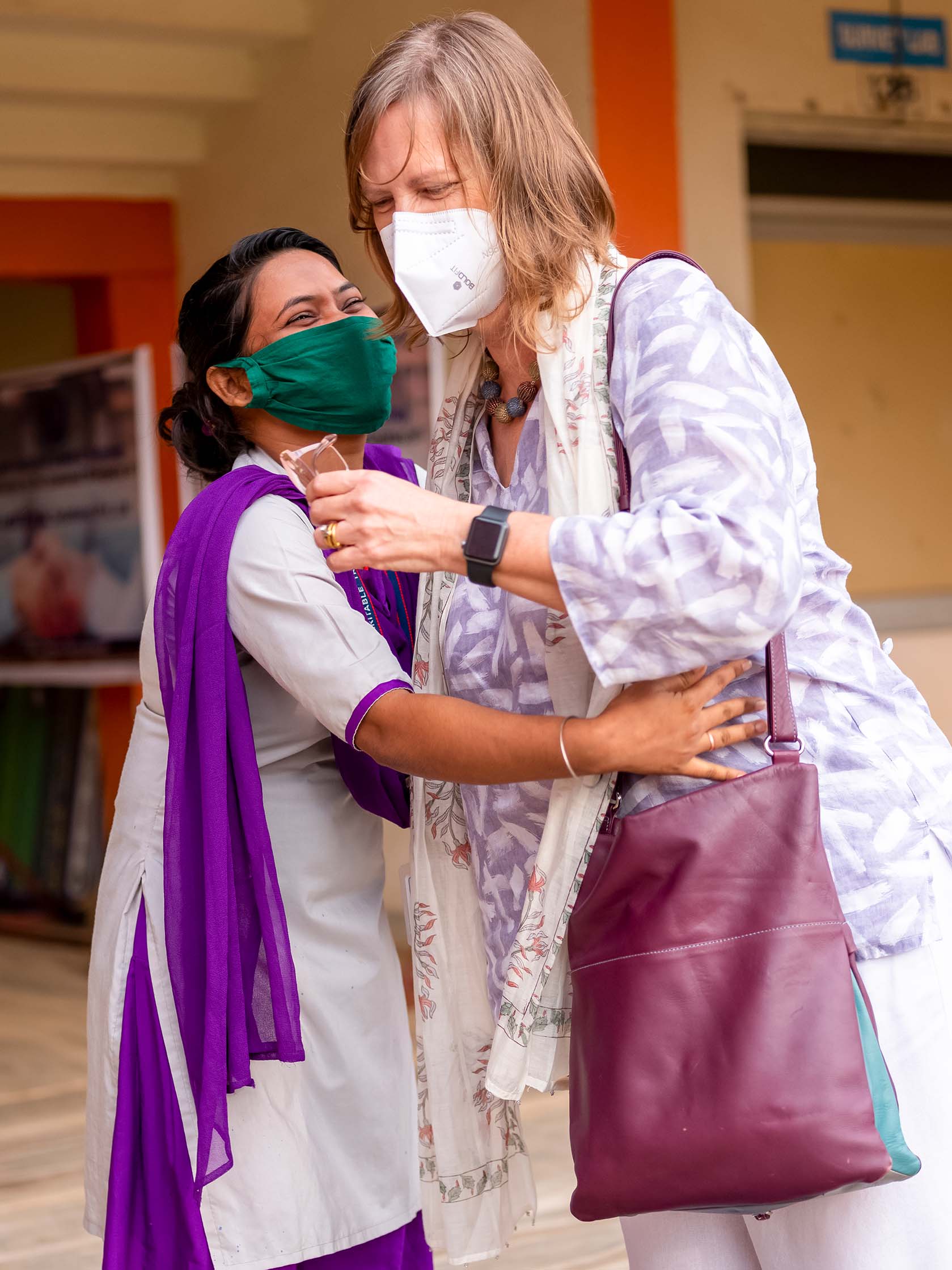Coverage: Transforming lives through education and opportunities for women in India
During her first official visit to the state of Odisha, India, UN Women India Country Representative Susan Ferguson meets with government officials and women on the ground, stresses on the importance of education and skilling of women and girls for building back better.Date:
Author: Soumya Samal

“A formal education helps women become financially independent and find jobs,” says Srimati Pingua. At age 38, Ms. Pingua rejoined formal education through UN Women’s Second Chance Education Programme, along with her two daughters. She recently passed her 10th standard examination, which marks the completion of secondary school in India, and received the certificate from UN Women Representative in India, Susan Ferguson, during her first official visit to Odisha, from 21 to 23 September 2021.
“I am currently working as an Anganwadi worker,” explained Pingua. “I have learned new things, like computer skills, and I am more confident about talking in front of everyone. The education and skills I have gained will also help me get a promotion at work.”
In her conversations with government officials and programme partners, Ferguson stressed the need to invest in women's education and vocational skills: “It is a critical step for achieving the 2030 Agenda for Sustainable Development and in making sure that women and girls in India have equal opportunities to complete their education and learn employable skills that prepare them for the future of work.”
Ferguson met with several state government officials and representatives from local institutions involved with education and skilling during her visit, including the Chief Minister of Odisha Naveen Patnaik, the Chairman of Odisha Skill Development Authority (OSDA) Subroto Bagchi, and the Director of Employment and Technical Education and Training and OSDA chief executive Sri Reghu G.
The Second Chance Education Programme enables women to re-enter formal education, learn vocational and entrepreneurial skills, and connects them to employment and business opportunities. As part of the Programme, UN Women will further support the OSDA-run World Skills Centre in Bhubaneswar. The Centre offers a host of training courses, such as in mechanical and electric services, transportation services, precision engineering, beauty and wellness. About a quarter of those who completed the training and set up their own businesses are women. UN Women’s programme will ensure that women from marginalized communities in Odisha can access these vocational skills and training courses.
Tapaswini Barik, 22, participated in a nursing training course at another location in Bhubaneswar through the Second Chance Education programme. “I would like to work in a hospital someday, so that I can financially support my family,” she told Ferguson. “I am learning emergency medical technician skills, nursing, computer skills and English.”
Ferguson also visited the Women Empowerment Hub in Dhenkanal, around 75 km from the capital. The programme currently supports 12 such hubs across the 12 programme districts in India, providing safe and women-friendly spaces to learn and develop vocational skills and small business ventures. Ms. Sukanti Padhan is a proud mother of Sushila Padhan, who benefited from the vocational training sessions offered at the hub. “My daughter is an earning member of the family and an independent woman now,” said Padhan. “The training helps women and girls to stand on their own feet and live life on their own terms.”
For Ferguson, the visit to Odisha was memorable and inspiring. “My interactions with the women who are part of our programme and their inspiring journeys will always stay with me,” she said. “Their stories show us why we need to invest in programmes like the Second Chance Education programme. Srimati Pingua is not only completing her own education, she is also setting an example for her daughter, who is studying with her.”
Ferguson concluded her visit to Odisha in the village of Urbengi, where she met with women farmers who have learned new and improved farming techniques. Some have increased their income significantly and are investing the extra income to school their children and to purchase land under their own names. In rural India, where only 13 per cent of women own land, although 85 per cent of them work in agriculture, land ownership is a significant achievement.
To date, the Second Chance Education Programme has helped 8,252 women across India improve their crop yields and income by using quality seeds, pest management and organic farming techniques. The programme is funded by BHP Foundation and implemented by the non-profit organization, Professional Assistance for Development Action (PRADAN), along with other implementing, consortium and state government partners.
Editors: Urjasi Rudra and Christopher Dickson
